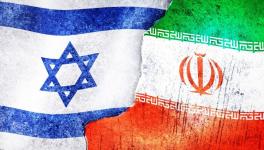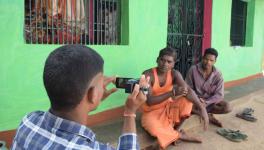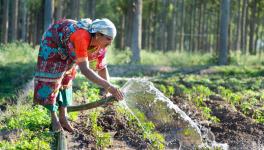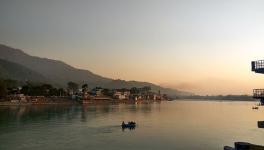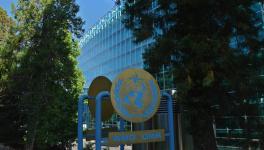The Paris Agreement, COP-23, and Equity Going Forward
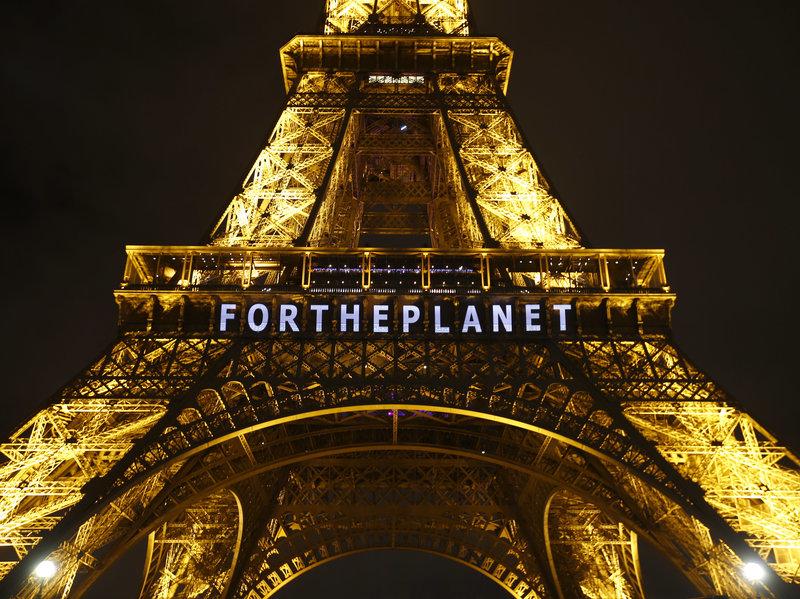
Image Courtesy: Francois Mori/AP
Three important facts about the Paris Agreement, adopted in 2015 and ratified by more than 170 countries by now, are irrefutable. The first is that the contributions for climate action pledged by all countries under the Paris Agreement are voluntary, and based on each countries’ assessment of their own ‘national circumstances’. These voluntary commitments may not, and indeed do not at their current levels, add up to what would be required to limit temperature rise to below 2 deg. C. The second is that these voluntary contributions are not legally binding. A country need not even exit the Paris Agreement a la the United States. Nothing prevents countries from simply defaulting on their commitments, citing changed national circumstances. There is only a vague moral imperative to meet the targets (if that) and not a legal one. The third, more important perhaps to developing countries, is that the Agreement contains no discussion on how the concept of equity is to be operationalized and negotiations around this issue continue to be charachterized by severe contestation between the developed and developing countries.
One would think therefore that developing countries would have had little to celebrate about the adoption of the Paris Agreement. While a few commentators did say this in 2015 itself, a large majority of climate policy experts, even from the developing world seemed to welcome the Paris Agreement then. The withdrawal of the United States from the Agreement and the continued tendency of self-proclaimed climate leaders such as the EU, to hide behind US inaction, have cast some shadow at least on the overwhelming enthusiasm of 2015. Indeed, in the first few days of COP-23 this year, it was clear that the developed countries were prepared to renege on their promises from 2015. They refused to allow the inclusion of the review of pre-2020 actions as part of the agenda for COP-23 and insisted that the discussion only focus on post 2020 commitments made under the Paris Agreement where actions of all countries would be under review and not just theirs. This strategy was obviously aimed at pushing all climate action to beyond 2020 when the Paris Agreement comes into effect and would serve to increase the already building pressure on emerging economies such as India and China to ratchet up their contributions while letting developed countries get away with doing less than they promised to meet the targets of the second Kyoto commitment period, which ends in 2020.
This and similar other bitter contestations between developed and developing countries at COP-23 point to certain trends that those working on climate change, especially in developing countries should be aware of. The first is that, while it may seem that academic and civil society groups in the developed countries often appear to be in opposition to their own governments, their understanding of the concept of ‘equity’ and its operationalisation also leaves a lot to be desired. Calls for a global moratorium on coal plants, fracking, and hydro power projects, with no differentiation between developed and developed countries, promotion of renewable energy sources as inherently equitable and promotion of the same in developing countries irrespective of the status of climate action in developed countries, a complete disregard for historical responsibility in defining fair shares of the mitigation burden, are just some of the examples of positions espoused by global civil society organisations and even academic institutions in the developed world. It is necessary therefore that developing countries, especially ones like India who have much to lose in the process, work towards developing their own models and narratives on the questions of climate change mitigation, adaptation, and finance.
The second thing to keep in mind is that while, a concrete operationalisation of the equity principle seemed to have been lost in the text of the Paris Agreement along with an understanding of differentiation between developed and developing countries, both these aspects seem to be remerging in the discussion about the ‘global stock-take’ which is to take place in 2022. The global stock-take will be a review of the nationally determined contributions (NDCs) pledged as part of the Paris Agreement vis-a-vis the gap that remains between the climate action that is committed and the climate action that is needed to meet the temperature targets. At COP-23, India along with other developing countries argued quite strongly for ‘equity’ being the basis of any such benchmarking of adequacy undertaken in the global stock take. However a proactive position, possibly with at least a South-South consensus, on what equity means in concrete terms, needs to be worked out so as not to be caught wrong-footed and alone again as India did at COP-17 in Durban and COP-21 in Paris. Such a position has to be carefully argued in cognizance of the particular challenges that the developing countries face.
If the Paris Agreement is to serve the purpose of protecting the interests of the poorest populations in developing countries, multilateral discussions have to be forced back to two main issues - adequacy and equity. The discussion around the framework for the Global Stock Take provides an opportunity for this, and India should be ready to exploit it. The three aspects that must be kept in mind while articulating a position on this matter are – i) the science of climate change has to be clearly acknowledged and included in the framework, ii) a concrete proposal for operationalizing equity has to be included, iii) the targets would have to be such that they both contribute to climate change mitigation as well as provide flexibility to countries to choose their own economic futures.
The question then is whether such an articulation is possible within the framework of the Paris Agreement. There are already many proposals that claim to operationalise equity and measure the contributions pledged by each country against what would be their ‘fair share’ of mitigation towards meeting the temperature goals. The Climate Action Tracker is a popular tool that purports to provide users with a quick view of who has committed how much and whether this commitment is adequate or not. Other proposals that use a similar framework as that of the Climate Action Tracker, albeit with a different set of assumptions, are also widely available. Another variety of proposals that use the available cumulative emissions as the basis of allocating a fair share and compare commitments against these fair shares to measure ambition and adequacy have also been published. In India, the ‘carbon budgets approach’, or an argument for ‘equitable access to carbon space’ has always been part of the discussion around equity. It may be prudent to explore whether this approach can now be used to articulate a position that allows India to take the lead in shaping the discussions on the global stock-take.
Climate science provides results for the amount of cumulative emissions that are available to the world as a whole if we are to have some chance of restricting temperature rise to below 1.5 or 2 deg. C. Of this total amount of cumulative emissions available to the world between 1870 and 2100, a certain amount has already been emitted up to 2017. It is widely acknowledged that what is remaining for the future is much less than what has been emitted by the world in the past, if we are to have a reasonable chance that temperature rise can be restricted to below even 2 deg. C. There are many ways in which this remaining cumulative emissions between 2018 and 2100, in other words the remaining carbon space, can be divided among different countries. One could use measures of historical responsibility, capability, cost of mitigation, or even a combination of some or all of them to determine how the remaining carbon space is to be divided. The result will be a hypothetical allocation of some share of this space to each country. The country’s NDC can then be compared to this share to determine whether it is equitable and adequate. It would serve not only India, but other developing countries as well to articulate a strong proposal on these lines in preparation for the discussions on the global stock take that have already begun and will in the upcoming conferences occupy central importance. In the last 25 years, from Rio to Paris, developing countries have lost ground, bit by bit, in the fight to preserve the principle of equity. To avoid further erosion of this principle, developing countries have to start framing the terms of the negotiations and not simply react and bargain within the terms set by developed countries.
Get the latest reports & analysis with people's perspective on Protests, movements & deep analytical videos, discussions of the current affairs in your Telegram app. Subscribe to NewsClick's Telegram channel & get Real-Time updates on stories, as they get published on our website.









